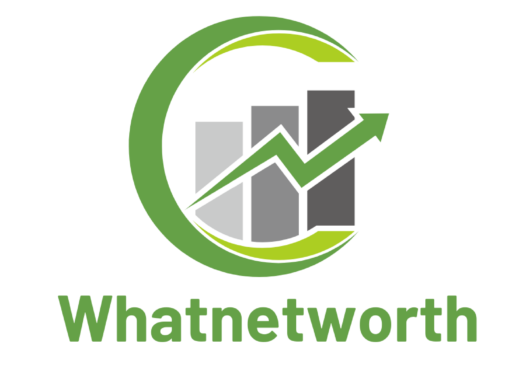In today’s fast-paced world, achieving financial freedom is more critical than ever. With global economies shifting and technology reshaping industries, 2025 presents unique challenges and opportunities for managing personal finances. Whether you’re looking to save more, invest wisely, or reduce debt, these ten tips will help you navigate your financial journey and secure a prosperous future.
1. Set Clear Financial Goals
Financial freedom starts with a vision. Without clear goals, your financial journey lacks direction. Take the time to:
- Define short-term, mid-term, and long-term goals. For instance, saving for a vacation, building an emergency fund, or planning for retirement.
- Be specific and realistic. Instead of saying, “I want to save money,” aim for, “I want to save $10,000 by the end of the year.”
- Use the SMART framework (Specific, Measurable, Achievable, Relevant, Time-bound) to craft actionable plans.
By setting clear goals, you create a roadmap that guides your spending, saving, and investment decisions.
2. Build a Budget and Stick to It
A well-planned budget is the cornerstone of financial success. In 2025, budgeting tools and apps like Mint, YNAB (You Need A Budget), and PocketGuard make it easier than ever to manage your money. Here’s how to get started:
- Track your income and expenses. Identify patterns and areas where you can cut back.
- Allocate your funds wisely. Use the 50/30/20 rule: 50% for needs, 30% for wants, and 20% for savings or debt repayment.
- Review your budget regularly. Adjust for changes in income or unexpected expenses.
Consistency is key. By sticking to your budget, you’ll have better control over your finances and avoid unnecessary debt.
3. Build an Emergency Fund
Life is unpredictable, and an emergency fund acts as a financial safety net. Aim to save 3-6 months’ worth of living expenses. Here’s how:
- Start small. Begin with a goal of $1,000, then gradually increase.
- Automate your savings. Set up automatic transfers to a dedicated emergency account.
- Choose a high-yield savings account. This ensures your money grows over time while remaining accessible.
An emergency fund prevents you from relying on credit cards or loans during unexpected situations like job loss or medical emergencies.
4. Eliminate High-Interest Debt
High-interest debt, such as credit card balances, can drain your finances. Prioritize paying off these debts using strategies like:
- The Debt Snowball Method: Focus on paying off the smallest debt first while making minimum payments on others, then move to the next smallest.
- The Debt Avalanche Method: Prioritize debts with the highest interest rates to save on overall interest costs.
- Consider debt consolidation. Combining multiple debts into one lower-interest loan simplifies payments and reduces interest.
Reducing high-interest debt frees up money to invest and save for the future.
5. Invest Wisely
Investing is essential for building wealth and achieving long-term financial goals. In 2025, explore opportunities such as:
- Index funds and ETFs: These offer low-cost diversification and are ideal for beginners.
- Robo-advisors: Automated platforms like Betterment and Wealthfront provide personalized investment advice based on your goals and risk tolerance.
- Cryptocurrency and blockchain technology: While risky, these can offer high returns. Only invest what you can afford to lose.
- Real estate: Consider REITs (Real Estate Investment Trusts) for hands-off property investments.
Diversify your portfolio and stay informed about market trends to maximize returns while minimizing risk.
6. Prioritize Retirement Savings
Retirement may seem distant, but the earlier you start, the better. Take advantage of:
- Employer-sponsored plans: Contribute to 401(k) or similar programs, especially if your employer offers matching contributions.
- Individual Retirement Accounts (IRAs): Choose between traditional or Roth IRAs based on your tax situation.
- Compound interest: Start early to benefit from the exponential growth of your investments.
Set specific retirement goals and adjust contributions as your income grows.
7. Enhance Financial Literacy
Knowledge is power. Improving your financial literacy equips you to make informed decisions. Resources to consider include:
- Books: Classics like Rich Dad Poor Dad by Robert Kiyosaki and The Intelligent Investor by Benjamin Graham.
- Podcasts: Shows like The Dave Ramsey Show or Afford Anything.
- Online courses: Platforms like Coursera and Udemy offer personal finance classes.
Stay curious and continually educate yourself on topics like investing, tax planning, and financial management.
8. Leverage Technology for Financial Management
Technology is revolutionizing personal finance. Use tools and apps to:
- Track expenses and savings: Apps like Mint and Personal Capital offer comprehensive financial overviews.
- Automate payments: Schedule bill payments to avoid late fees.
- Monitor investments: Platforms like Robinhood and E*TRADE provide easy access to investment tracking.
Embracing technology streamlines financial management and helps you stay organized.
9. Practice Mindful Spending
In a consumer-driven world, mindful spending helps you avoid impulse purchases and focus on what truly matters. Tips include:
- Pause before purchasing. Ask yourself if the item aligns with your goals and if it’s a need or a want.
- Use cash or debit cards. This limits overspending compared to credit cards.
- Adopt a minimalist lifestyle. Prioritize experiences over material possessions.
Mindful spending ensures your money aligns with your values and priorities.
10. Plan for Taxes
Tax planning is an often-overlooked aspect of personal finance. To minimize tax liability and maximize savings:
- Understand deductions and credits. Research applicable tax breaks for education, energy-efficient home upgrades, or child care.
- Contribute to tax-advantaged accounts. Maximize contributions to 401(k)s, IRAs, or Health Savings Accounts (HSAs).
- Consult a professional. A tax advisor can identify strategies to optimize your tax situation.
Proper tax planning enhances your overall financial health and reduces stress during tax season.
Conclusion
Achieving financial freedom in 2025 requires intentionality, discipline, and adaptability. By setting clear goals, leveraging technology, and adopting smart financial habits, you can take control of your finances and build a secure future. Start implementing these tips today, and watch as your financial confidence and stability grow.
